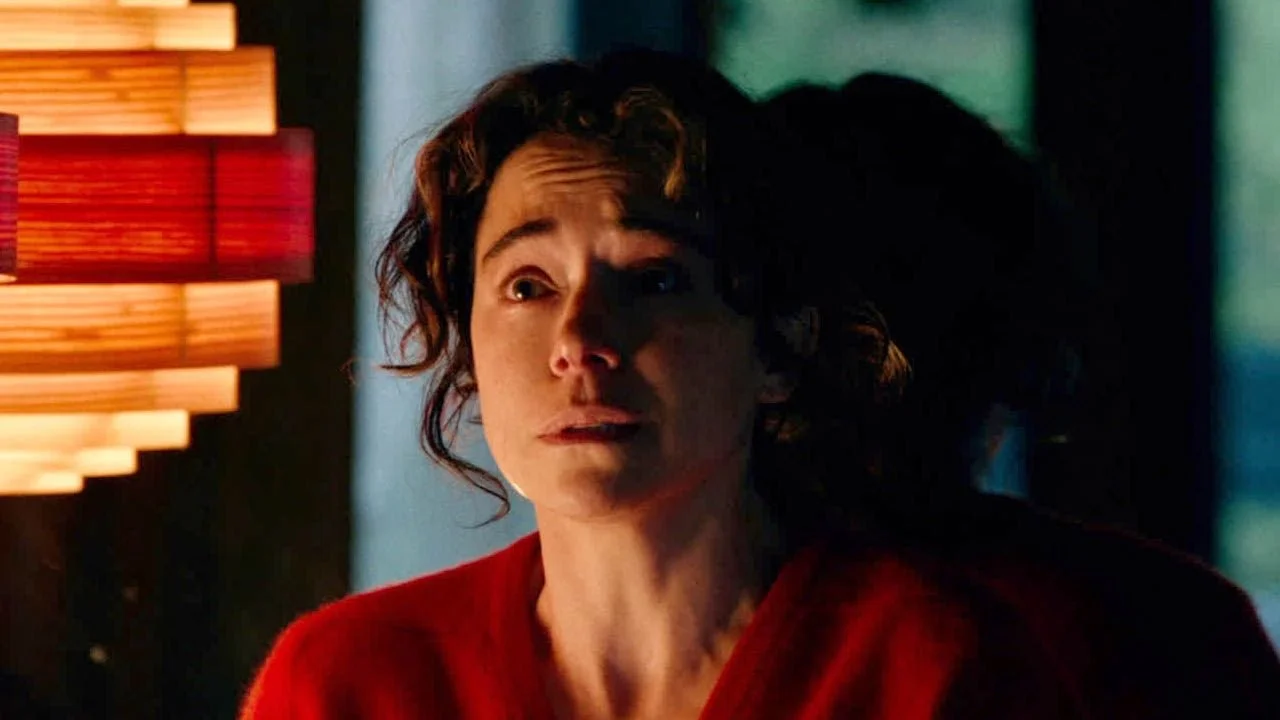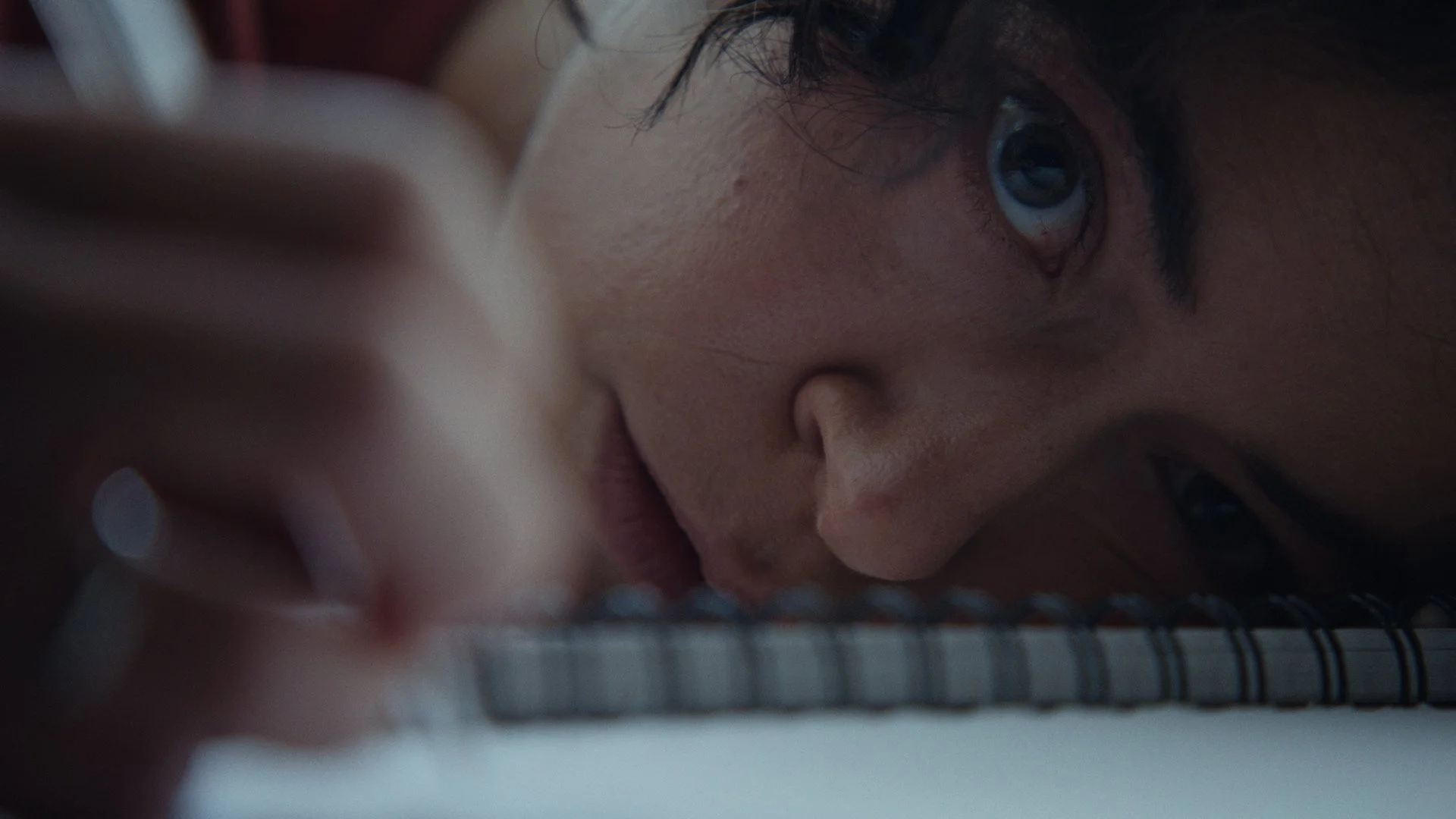'Keeper' Review: Oz Perkins Fumbles the Bag Once More
Oz strikes out once again with his sixth feature, ‘Keeper’, but this one could be the worst project he has ever helmed.
Osgood Perkins has made another bad film, and this one is worse than the previous films he’s directed. It’s that simple. It is not hyperbolic. It may sound like a broken record, and you’ll have to forgive if this writer occasionally does as well, but everything that doesn’t work about his prior movies can be applied in his latest endeavor into the world of elevated horror with ‘Keeper’. It’s a movie that has once again been sold through a secretive marketing campaign built on hype rather than on the film itself (in this case, through pullquotes from masters of horror, such as Guillermo del Toro, Fede Álvarez and James Wan, as NEON refused to show it to the press), and whose finished product amounts to very little by the time its credits roll.
Since NEON has been shrouding the movie in secrecy (going so far as to not hold press screenings for the vast majority of markets across North America), this review will not reveal much in terms of “plot” (if one can qualify it as such, but there isn’t anything much being offered.) Still, one must know that Keeper is essentially a two-hander between Liz (Tatiana Maslany) and her boyfriend, Dr. Malcolm Westbridge (Rossif Sutherland), as they spend a weekend at a secluded cabin in the woods.
There is, however, enough to talk about without you knowing what the film is actually about. That said, it won’t take long for you to parse through Perkins’ empty visual and verbal metaphors, which are repetitively bludgeoned at the audience, as Liz begins to dissociate and is unable to perceive what is real and a fabric of her imagination. I’d respect Perkins as a filmmaker more if he let these metaphorical images, which can be creepy to an atmospheric degree, speak for themselves, but he never does. The fundamental problem behind all of his films – Keeper included – is that his bevy of unsettling images, whether atmospheric or genuinely scary, evoke absolutely nothing in the grander scheme of their stories and themes.
The first half of the movie is more atmospheric than it is genuinely terrifying, which could prove tedious for those looking for appropriately horrifying imagery. However, there’s nothing wrong with atmospheric horror, one that crawls under your skin instead of directly scaring you. Yet, to do that, you must build a bone-chilling atmosphere that culminates in something, anything, of note to pay off your deliberately slow pacing to the audience. Keeper does none of that. It blurs the line between dreams and reality, sure, but never in a way that feels genuinely urgent or compelling, especially when it continuously puts us in the shoes of its protagonist.
We know, from the get-go, that the relationship Liz is currently in won’t amount to much, which she hasn’t realized yet. Instead of building upon this and creating some genuinely unsettling images based on her doubts that Dr. Westbridge might not be who he says he is, Perkins creates a cyclical supernatural thriller that consistently questions whether what Liz is seeing is real or not, even though it’s pretty clear that none of it matters, because the images aren’t saying a damn thing. Even the blocking choices, meant to elicit claustrophobia as Liz is further boxed in this relationship, end up as empty signifiers by the time the movie reaches its baffling denouement.
Each frame that carries some weight is an appropriation of another, better filmmaker, such as David Lynch, but without any desire for the audience to interpret what they’re seeing (or, worse yet, images completely devoid of meaning). That’s probably why Eli Roth thought the film was genius, or “like a surreal David Lynch movie,” as if surrealism wasn’t the late American director’s bread and butter. Yet this quote is the perfect indication of what’s wrong with the movie: the surrealism or obfuscation between Liz’s mind and the real world has no meaning beyond ripping off flourishes from artists Perkins has reverence for. You can stage a sequence where Liz dreams of the same figure in two different sizes, which immediately recalls Lynch. Still, if you’re unable to transcend the work of the person you’re referencing, the only thing you’re doing is copying them without understanding the why behind their work.
Lynch always lets the audience figure out what he meant, going so far as not to spell out how certain scenes, or entire movies, were done. In fact, most of his secrets have gone with him to the great beyond – it’s up to us to parse his images, which can be interpreted through multiple avenues. In Keeper, Perkins has both Liz and Malcolm sit down during its climax to explain literally everything that the filmmaker has been clumsily building towards, because his imagery can’t speak for itself. He doesn’t allow for interpretation, because the images can’t be interpreted. They have to handhold the audience to an evident conclusion, and if they don’t understand it, don’t worry, because the filmmaker will sit down and tell you all about it.
That said, the metaphor was already obvious before the big “reveal,” which nixes any emotional or thematic impact that such a cop-out conclusion would have. Spelling out its themes and story is an even bigger cowardly move because it essentially tells us that its filmmaker doesn’t trust his own work, and, by extension, the audience. They won’t be able to know what the movie’s talking about by simply looking at it, or what it’s implying, which is why, in every single Oz Perkins movie ever, we must have the obligatory “sitting down” conclusion where everything is laid out in front of us, as if we can’t put two and two together.
It doesn’t matter if Tatiana Maslany or Rossif Sutherland do solid work when they play shells of characters that have obvious paths anyone who’s mildly paying attention will guess. And it also doesn’t matter if the final ten minutes or so of Keeper contain the deeply unsettling imagery Perkins has built up towards. You’ve removed all texture – and suspense – by letting us know of every secret the movie holds, to a ridiculous degree. Before going there, though, you’ve bored the audience to tears with a meaningless first half that goes around in circles and never gives us anything to latch onto. The investment is thus minimal when you try to pay off what you’ve been building towards, because nobody cares about your film by then.
It’s another waste of talent and time from one of horror’s worst filmmakers, whose next movie, The Young People, sounds more like a threat (even with Nicole Kidman and Johnny Knoxville as part of the cast) than something audiences should look forward to. Maybe NEON should rethink their plans with Perkins. Perhaps instead of giving him another trillion dollars, they should spend that money on promoting – and, most importantly, releasing – their numerous Cannes acquisitions rather than giving them limited “qualifying” runs and slowly expanding them.




